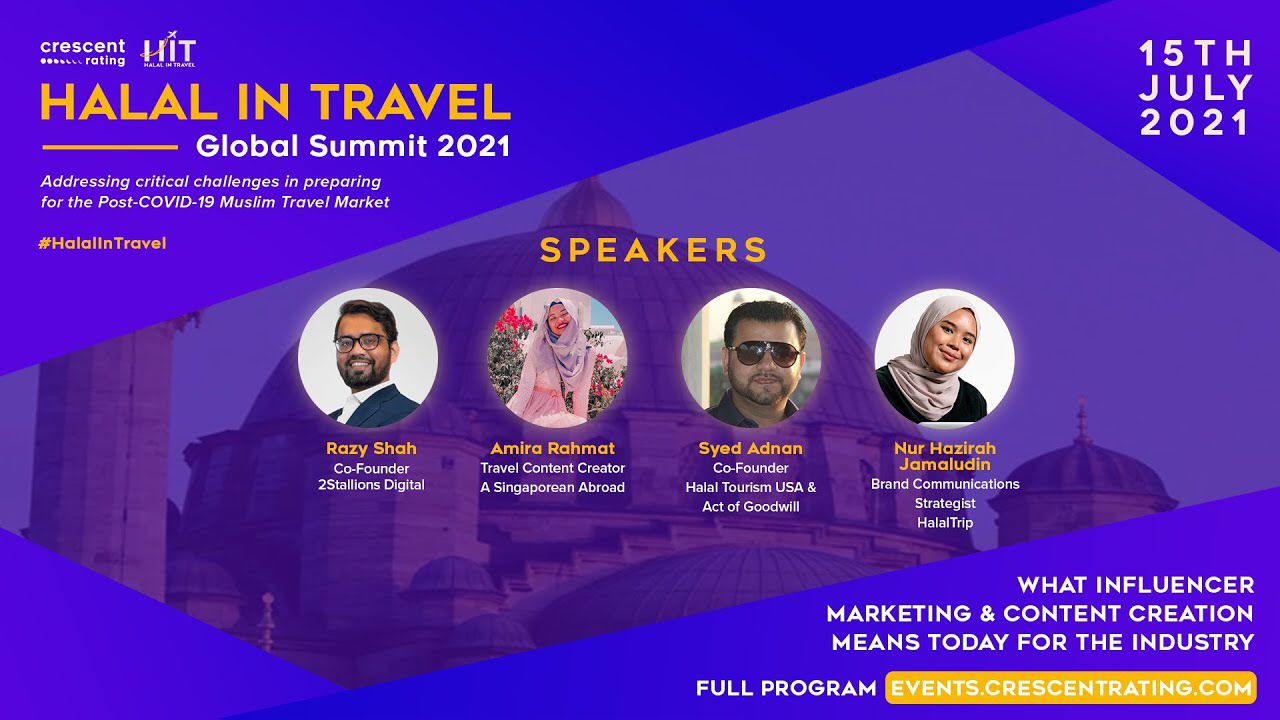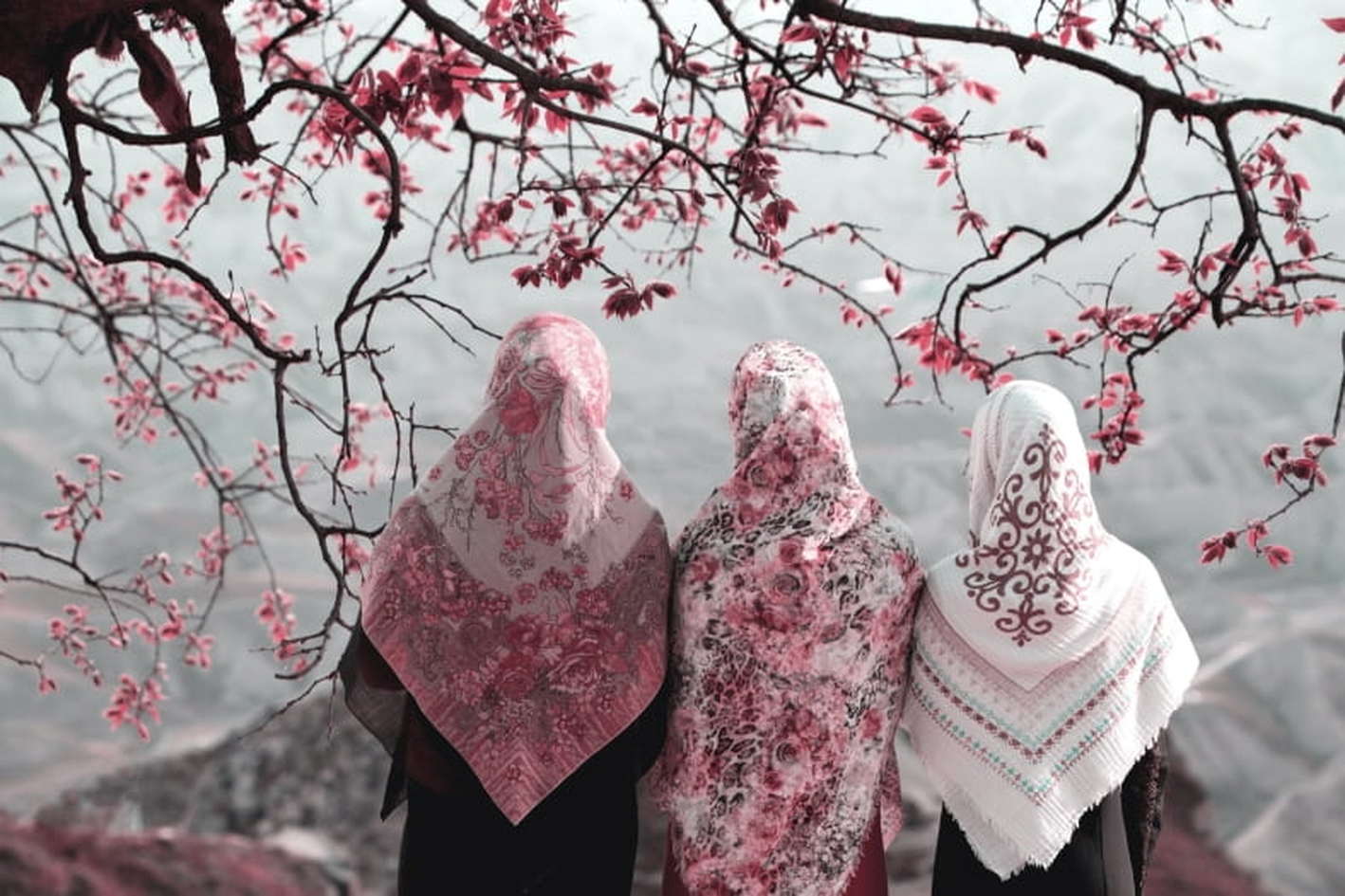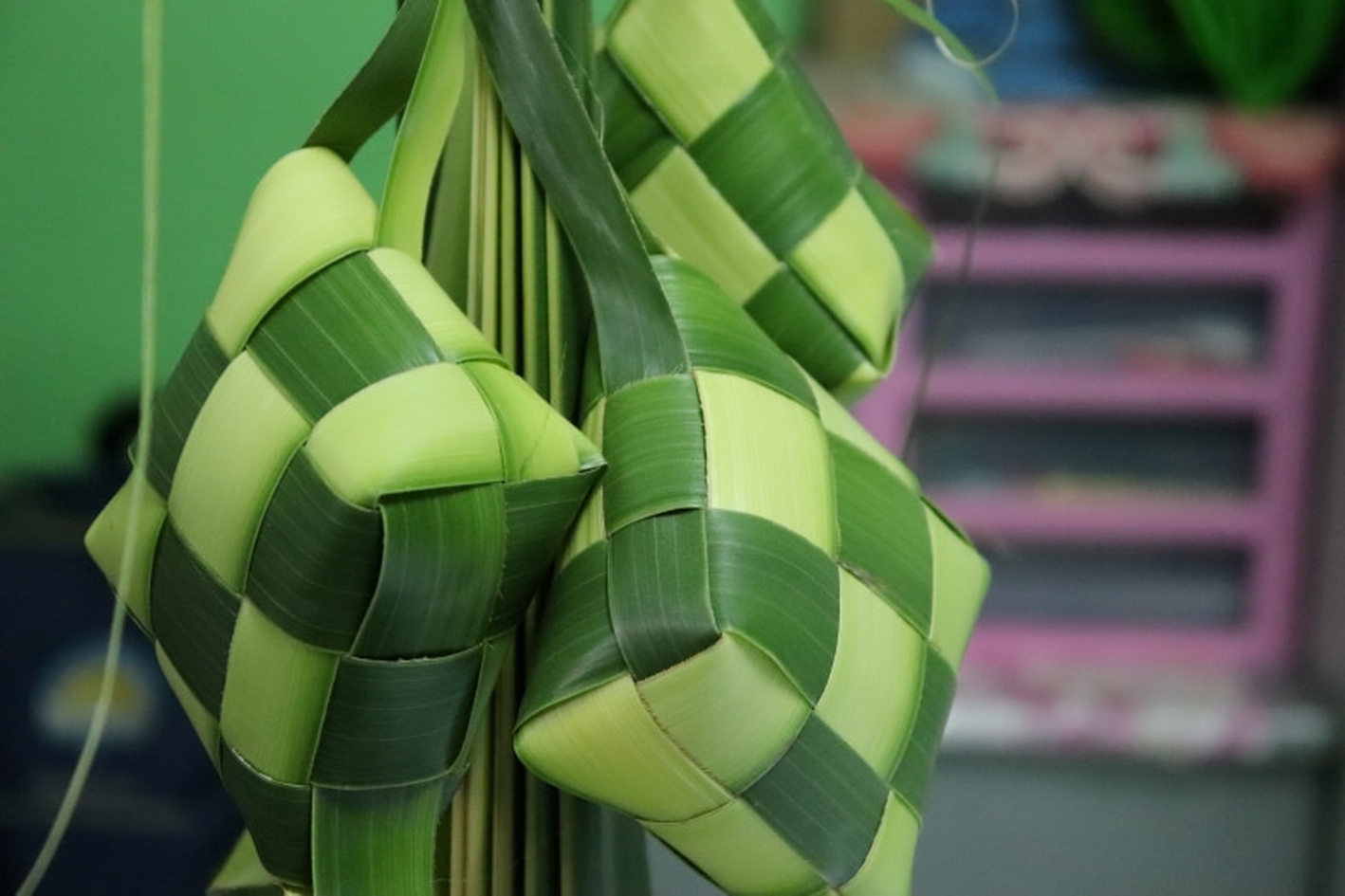
Leisure travel is gradually regaining ground two years after the COVID-19 pandemic hit the snooze button in nearly every aspect of our lives. However, brands and members of the Muslim travel industry are facing several uncertainties and challenges in welcoming the post-pandemic era of traveling, including the future of influencer marketing and content creation.
How will travelers, in a post-pandemic setting, respond and react to influencers nowadays? And what content will likely be effective in keeping in touch with an otherwise disengaged audience?
Here in CrescentRating, we have rounded up several experts and key industry leaders to give us a glimpse of what lies in the future of influencer marketing and content creation regarding Muslim travel.
For its Halal in Travel Global Summit 2021, CrescentRating hosted a webinar titled The Future of Influencer Marketing and Content Creation to shed light on the questions surrounding the world of influencers and content production.
Our esteemed panelists included Nur Hazirah Jamaluddin (Brand Communications Strategist, HalalTrip), Syed Adnan (Co-Founder, Halal Tourism USA & Act of Goodwill), and Amira Rahmat (Travel Content Creator, A Singaporean Abroad).
Co-Founder of 2Stallions Digital, Razy Shah, was also present as its moderator.

Image from Unsplash by Hasan Almasi
Even in traveling, traditional advertising and marketing methods may no longer be effective in this age of empowered consumers and travelers. Influencer marketing, on the other hand, offers a more refreshing approach.
Influencer marketing partners with (paid) influencers to promote a brand, product, or service. They are similar to brand ambassadors, only that they can drive action and build credibility quickly.
Around 49% of consumers nowadays depend on influencer recommendations in nearly everything; from a brand preference for a skincare product to choosing the following destinations they want to visit. In the world of Muslim travel, influencers also play an essential role in promoting goals and building communities.
However, influencers also have their downsides. One of them is, the audience associating influencers with a lavish lifestyle that seems to justify excess and extravagance.
With more and more brands that want to leverage their existing network of followers, influencers have also, in some cases, morphed into profit-earning machines instead of champions of authenticity.
However, a new type of influencer was born shortly after the pandemic.

Image from Unsplash by Rax Arn
When the lockdowns virtually forced everyone to turn to the internet, an influencer's prominence only grew. But more power always comes with more responsibility.
Amira suggested influencers should espouse a more humanized personality of themselves - by engaging and interacting more frequently with their audiences - to provide more value to the travel and tourism sector shortly.
She also recommended more collaboration between travel influencers and players in the Muslim travel industry.
"I believe that post-COVID, the relationship between travel influencers and brands will be more pertinent. Because content creators can foster inspiration and tell unique stories based on our perspectives," added Amira.
Additionally, influencers can advocate for the revival of the travel and hospitality industries, ultimately facilitating a culture highlighting community work's importance.
Last but not least, influencers in a post-COVID era should be able to provide accurate and authoritative information to their audiences. In this way, they can sustain their credibility and image reputation throughout disruptive times.
Aside from influencer marketing, content planning and creation have proven instrumental in mitigating the impact of unpredictable changes in a consumer or traveler's behavior. Whether it's a blog, a photo, or a short video, well-planned and meticulously curated content can win the trust and hearts of audiences, even the skeptical ones.
Unlike other forms of advertising, content creation is almost always free. As a result, business owners and marketers alike can tap their creative team in carrying out a campaign that has the potential to stir the status quo or go viral.
Before COVID-19 changed our lives, content creation was often considered just another strategy to promote popular destinations and other similar objectives that usually do not factor in consumer preferences and behavior.
In addition, most brands and services use content creation to ride on megatrends, which experts during The Future of Influencer Marketing and Content Creation webinar for Halal in Travel Global Summit described as a short-term goal that may not be sustainable in the long run.

IMAGE: From Unsplash by Mufid Majnun
Muslim travel stakeholders should note that even as borders around the world ease up, travelers remain cautious about the thought of flying out. Furthermore, the pandemic paved the way for a growing number of socially conscious consumers. With these in mind, content creation should focus on authentic and localized experiences - a strategy that focuses more on the traveler's behavior and priorities.
For one, localized content has helped HalalTrip sustain interest in Singapore as one of the favorite destinations for Muslim travelers during lockdowns.
"This year (2021), we have been working more on local content. For example, when we had our Muslim Visitors Guide for Singapore, there was a lot of buzz about the newest Halal food stalls and restaurants. They were a big thing. So after working for years and years of outbound content like traveling, I think it's about time we focus more on local content like Halal Food Singapore," Hazirah explained.
Players in the industry must also keep in touch with their target audiences by producing more relatable content. For example, Adnan and Amira agreed that more and more travelers turn to short-form videos such as those published on TikTok and Instagram to seek out new, undiscovered destinations and experiences.
"Short videos are a big thing now. People have changed a lot of their minds when watching long-form videos. They want 15 seconds, 30 seconds, and then swipe up. It's completely changing, so we have to adapt to it and see how we can squeeze a three-minute video into a less-than-a-minute video to give the same experience without the audience disinterested," Adnan said.
Despite the disruption brought about by COVID-19, influencers and content creators continue to be essential components of a destination or a brand's overall marketing strategy. To leverage them efficiently and effectively, however, the Muslim travel industry stakeholders must keep up with the changes around them. Therefore, we hoped these insights would help chart your marketing plans in a post-pandemic setting.
Click here for full session.